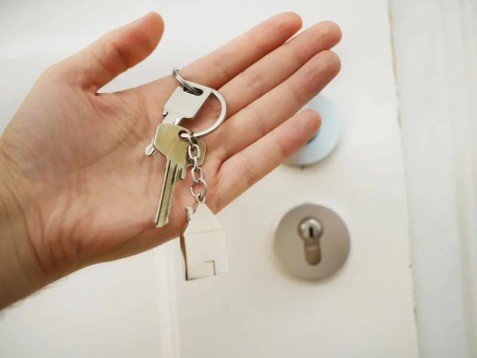Saving for a home has always been challenging. It takes discipline to keep socking money away for a down payment on a house instead of spending the money on more immediate things. And it’s only gotten more difficult in recent years to accomplish this goal because of rising home prices, an incredibly competitive sales process, and rising costs of everyday goods and services.
But there are some ways you can save money, sometimes without even noticing you’re doing so. Building that nest egg takes time and effort, but it’s within almost everyone’s capability with a little know-how.
Start by determining how much you need to save by estimating how much you can afford to spend on a house. You can use a down payment calculator to help.
Auto-Save
One of the best ways to resist the temptation to spend your money rather than saving it for a home is to act like it was never there in the first place. That might sound odd or counterintuitive, but it can be very effective. Check with your employer or bank to see if you can automatically deposit a portion of your paycheck into a separate savings account. That way, a chunk of money is saved before you ever have the chance to spend it. Plus, you don’t have the administrative hassle of moving money around. The funds go directly into the account, and all you have to do is check the balance from time to time.
Take Advantage of the Unexpected
Most of us have a steady source of income from our work. Every now and then, we’ll get an unexpected windfall in the form of a bonus, an inheritance, or a larger-than-expected tax refund. It’s tempting to treat this money as an extra pool of cash for having fun or making purchases. Put that money directly in the bank instead. You know you don’t need it for your regular purchases because it was unexpected, so you can feel comfortable stashing it away. Put those extra funds in your savings account and pretend they aren’t even there when the urge for a shopping spree hits.
Consider a Money Market Account
Most of us know that creating a specific savings account is an excellent way to maximize your saving potential. For example, your retirement account probably uses compound interest to capitalize on your savings over time. But when saving for a home, you’ll want to take a slightly different approach. Because you’ll be using the money soon, you don’t want it tied up in an account that comes with tax penalties for early withdrawal. Instead, you can look into a money market account at your bank. These accounts pay interest, allowing you to make money with your money, but without tax penalties for early withdrawal.
Rethink Retirement
Generally speaking, you should contribute the maximum amount possible to your retirement account. But if you have an aggressive timeline for saving for a home, you can consider paring back your retirement contribution temporarily and redirecting the funds to your down payment fund. Then, once you’ve completed your home purchase, you can scale the retirement contribution back up again. Buying a home is the most common way to build equity, and homeownership is very useful when retirement rolls around. So, you would still be saving for your future. Just remember to ramp that contribution back up after a home purchase.
Saving tens or even hundreds of thousands of dollars for a home purchase is daunting, and when you add in the competitiveness of today’s marketplace, it can feel impossible. But it doesn’t have to be. With some research and planning, you can find ways to save up for your dream home while still affording all the things you need for your life today.
The team at Bank of Sun Prairie is pleased to offer this information through our partnership with Madison Minutes. Our Financial Fitness Center offers 50+ digital short courses in English and Spanish. Visit us in Sun Prairie and Cottage Grove today.

